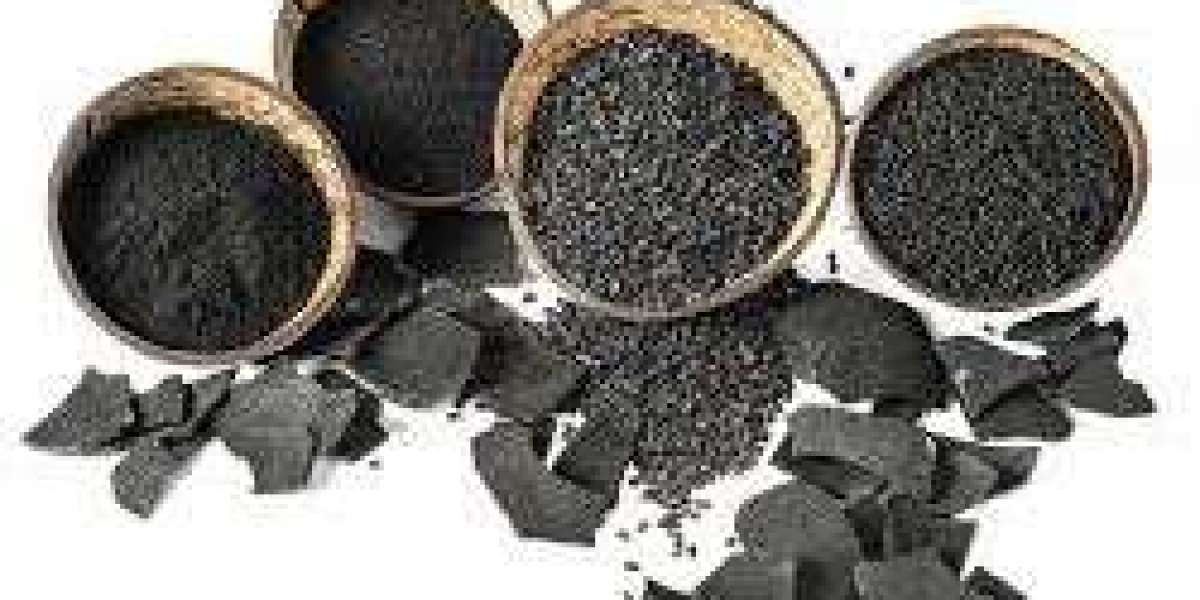As the world continues to search for sustainable and effective purification solutions, Coconut Shell Activated Carbon stands out as a natural marvel. Derived from renewable coconut shells, this eco-friendly material is known for its exceptional adsorption capacity, high purity, and impressive durability. It has become one of the most preferred filtration materials for removing contaminants from both water and air.
From households to large-scale industrial systems, Coconut Shell Activated Carbon offers a perfect balance of performance, sustainability, and cost efficiency. In this comprehensive guide, we’ll explore what makes this natural carbon so powerful, how it’s produced, and why it’s an essential component in modern purification technologies.
What is Coconut Shell Activated Carbon?
Coconut Shell Activated Carbon is a form of activated carbon made from the shells of coconuts—a renewable and sustainable raw material. Through a controlled carbonization and activation process, these shells are transformed into a highly porous substance capable of trapping contaminants, chemicals, and odors from liquids and gases.
Coconut shells are ideal for producing activated carbon because they yield a high level of microporosity, making them especially effective in capturing small organic molecules. This gives coconut shell carbon a superior edge over other types like coal-based or wood-based activated carbon.
How Coconut Shell Activated Carbon Works
The primary mechanism behind Coconut Shell Activated Carbon is adsorption—the process of attracting and holding molecules onto the surface of the carbon particles. Thanks to its extensive pore structure and vast surface area (ranging between 1,000–1,200 m² per gram), this type of carbon can effectively trap:
Organic impurities
Chlorine and chloramine
Volatile organic compounds (VOCs)
Unpleasant odors and tastes
When used in water purification systems, it removes toxins and chemicals that affect water taste and safety. In air purification, it captures harmful gases and odors, improving indoor and industrial air quality.
Key Properties of Coconut Shell Activated Carbon
High Surface Area:
Provides extensive active sites for efficient adsorption.Predominantly Microporous Structure:
Ideal for trapping small organic compounds and gases.Exceptional Hardness:
Offers high mechanical strength, minimizing carbon loss and dust formation.Renewable Source:
Made from natural coconut shells—a byproduct of the coconut industry, reducing waste.Low Ash Content:
Ensures purity and prevents unwanted mineral interference during filtration.
Production Process of Coconut Shell Activated Carbon
The production process of Coconut Shell Activated Carbon involves several critical stages that determine its quality and performance:
1. Raw Material Selection
High-quality coconut shells are selected for uniformity and minimal impurities.
2. Carbonization
The shells are heated in a controlled environment without oxygen to remove volatile components, forming a carbon-rich char.
3. Activation
The char undergoes steam or chemical activation at high temperatures (800–1,000°C). This process develops the pore structure, increasing the surface area and adsorption capacity.
4. Crushing and Grading
The activated carbon is crushed and sieved into desired particle sizes—granular, powdered, or pelletized—depending on its intended use.
5. Quality Testing
The finished product is tested for hardness, iodine value (a measure of adsorption capacity), moisture, and ash content to ensure consistency.
Applications of Coconut Shell Activated Carbon
1. Water Purification
Coconut shell carbon is widely used in:
Drinking water filters
Industrial wastewater treatment
Aquarium filtration
Desalination pretreatment
Bottled water production
It removes chlorine, pesticides, phenols, and organic contaminants, ensuring clean, odor-free, and great-tasting water.
2. Air Purification
Coconut Shell Activated Carbon efficiently removes:
Volatile organic compounds (VOCs)
Formaldehyde and ammonia
Odors and industrial gases
It’s used in HVAC filters, industrial exhaust systems, and even in home air purifiers.
3. Food and Beverage Industry
This carbon is used to decolorize and purify products like sugar, alcohol, and edible oils, ensuring high quality and safety.
4. Pharmaceutical and Chemical Applications
In pharmaceutical manufacturing, Coconut Shell Activated Carbon purifies raw materials, removes impurities, and ensures product consistency. It’s also used in gas masks and medical respirators for adsorption of harmful gases.
5. Environmental Protection
Due to its eco-friendly nature, coconut shell carbon plays a vital role in environmental cleanup efforts, such as oil spill remediation and soil purification.
Advantages of Coconut Shell Activated Carbon
Eco-Friendly Source
Made from renewable coconut shells, reducing deforestation and promoting sustainability.High Adsorption Capacity
Its microporous structure allows it to remove even the smallest impurities.Hard and Durable
More mechanically robust than coal- or wood-based carbon, reducing carbon dust formation.Long Service Life
Can be reactivated and reused, making it cost-effective.Neutral Taste and Odor
Perfect for drinking water purification where maintaining natural flavor is essential.Low Impurity Content
Contains less ash and metal residues compared to other types of activated carbon.
Comparison: Coconut Shell vs. Other Activated Carbons
Property | Coconut Shell Activated Carbon | Coal-Based Activated Carbon | Wood-Based Activated Carbon |
Raw Material Source | Renewable | Non-renewable | Renewable |
Pore Type | Mostly Micropores | Mesopores + Micropores | Macropores |
Hardness | Very High | Medium | Low |
Ash Content | Low | High | Medium |
Environmental Impact | Very Low | High | Moderate |
Best For | Water & Air Purification | Gas Adsorption | Color Removal in Liquids |
It’s clear that Coconut Shell Activated Carbon provides an ideal balance between efficiency, purity, and environmental sustainability.
Environmental and Economic Benefits
The environmental advantages of using Coconut Shell Activated Carbon are substantial:
Sustainable Production: Utilizes agricultural byproducts instead of fossil-based materials.
Reduced Carbon Footprint: Requires less energy to produce compared to coal-based carbon.
Waste Minimization: Shells that might otherwise be discarded are turned into valuable purification materials.
Economically, industries benefit from:
Lower maintenance and replacement costs due to longer lifespan.
Improved filtration performance, reducing chemical usage and operational downtime.
Why Choose Coconut Shell Activated Carbon?
If you’re looking for a natural, high-performing, and environmentally friendly solution for air and water purification, Coconut Shell Activated Carbon is the answer. Its combination of hardness, purity, and high adsorption capacity makes it suitable for applications ranging from household filters to large industrial treatment plants.
By choosing this carbon, you’re not only ensuring cleaner air and water but also contributing to a more sustainable planet.
Conclusion
Coconut Shell Activated Carbon truly represents the power of nature combined with technology. Its natural origin, superior purification ability, and eco-friendly characteristics make it one of the most efficient filtration materials available today. Whether you’re aiming to improve air quality, purify drinking water, or meet industrial environmental standards, this carbon delivers reliable results every time.
In an era where sustainability is paramount, Coconut Shell Activated Carbon proves that natural resources can indeed lead the way in creating a cleaner, healthier, and greener world.














